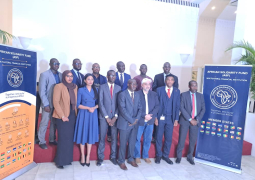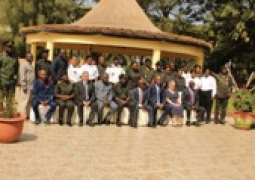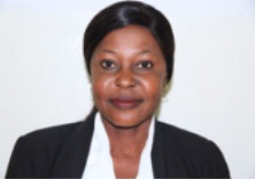Dr. Ahmadou Lamin Samateh, the minister for health, said his ministry rolled out an awareness raising campaign with complementary inoculation against COVID-19 targeting mobile populations along The Gambia’s 749-kilometre border with Senegal.
He said the campaign vaccinated 1,500 people in 60 border communities in the North Bank and Upper River regions from December 2021.
The campaign involves working with health educators and community leaders in each region, to ensure that information provided is well understood.
"It complements other ongoing vaccination efforts in a country where only 20 per cent of the eligible population has been fully vaccinated," he said.
He added that from March to May this year, the Ministry of Health implemented three more phases of the vaccination campaign in the Central River, Lower River and West Coast regions.
According to him, his ministry has always advocated that we view the pandemic from the lens. “This is why our outreach. We are optimistic that the awareness campaign will reach more communities and encourage more people to take the vaccine.”
According to him, 354,340 (Three hundred and fifty four thousand three hundred and forty) people have been fully vaccinated in the country.
Fatou Saine, a resident of Banjul took COVID-19 vaccine. She said vaccine contains “ingredients that help one’s immune system and make antibodies” (proteins that fight off infection and disease).
During an interview with The Point Newspaper, she said: "If you get vaccinated and then come into contact with the virus that causes the disease, your immune system will recognise it and be able to protect you by producing the right antibodies."
She added that having all the recommended doses of the vaccine is important for longer-term protection against coronavirus.
Isatou Badamasi, who got vaccinated in Banjul, said she was not forced to take COVID-19 vaccine. According to her, she voluntarily walked to the vaccination centre to get vaccinated for her own well-being and the betterment of the country.
She called on her fellow Gambians to get COVID-19 vaccine to protect themselves and others from COVID-19 infection.
Buba Jammeh, another vaccinated person, said he believes that all those vaccines were approved on the basis of large studies of safety and effectiveness.
According to him, the safety and effectiveness of the coronavirus vaccines continue to be checked while in use.
"There is no evidence to suggest that coronavirus vaccines will affect fertility in women or men," he said.
He explained that COVID-19 is a very infectious respiratory disease caused by a virus and it was first identified in late 2019.
Mr. Jammeh said COVID-19 is highly infectious and spreads through the air when people cough or sneeze, or when they touch surfaces where it has landed then touch their eyes, nose or mouth.
This story was produced with support from Journalists for Human Rights (JHR), through its Mobilizing Media in the Fight Against COVID-19 in partnership with Kaba Communication and The Point Newspaper.




